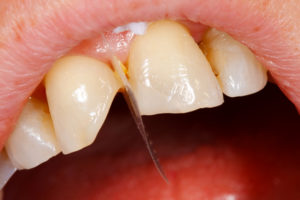 Trauma dentistry is the term used for the immediate care and management of teeth that have experienced a sudden injury from sporting accidents, direct impacts to the teeth (such as motor vehicles) or other misfortune.
Trauma dentistry is the term used for the immediate care and management of teeth that have experienced a sudden injury from sporting accidents, direct impacts to the teeth (such as motor vehicles) or other misfortune.
Time is of critical importance when one or more teeth are affected by trauma since early treatment reduces the risk of infection or irreversible tooth pain.
There are a few ways that your teeth can be injured:
1. Concussion (tooth being bumped),
2. Tooth fracture
3. Tooth displacement; or
4. Complete loss of the tooth (called “avulsion”).
Each type of tooth trauma needs to be carefully assessed for the best long-term outcome to be achieved. Even young children who are unfortunate enough to have their front tooth completely knocked can frequently have it replanted back into their mouth.
The impact of a fractured, discoloured or lost teeth go far beyond the mouth and the emotional and financial costs of maintaining a traumatised tooth need to be considered. In our image-conscious society, a traumatised tooth that has affected someone’s smile may also impact on their long-term job prospects.
The focus in treating a tooth affected by trauma will always be to restore it back to health as quickly as possible. We follow a four point plan in choosing how to care for a traumatised tooth:
- Type of Trauma – Is this a simple or “complicated” trauma? A complicated trauma involves an exposed tooth nerve, tooth displacement or fracture to the surrounding jaw bone.
- Tooth Nerve Status – Has the tooth nerve become painful or affected with infection? Can the tooth nerve be kept alive or is a root canal therapy essential to eliminate the pain and infection?
- Strategic Value – How important is the tooth (or teeth) to maintain your ability to chew or will it affect your smile?
- Long-Term Viability – Is there any value in keeping a compromised tooth for a few years rather than removing it as soon as it is traumatised?
Please be reassured that you will be fully informed of the options available and then given the freedom to choose how you wish to proceed. This is the basis of “informed consent” and is how we deliver each type of dental service at Happy Teeth.
